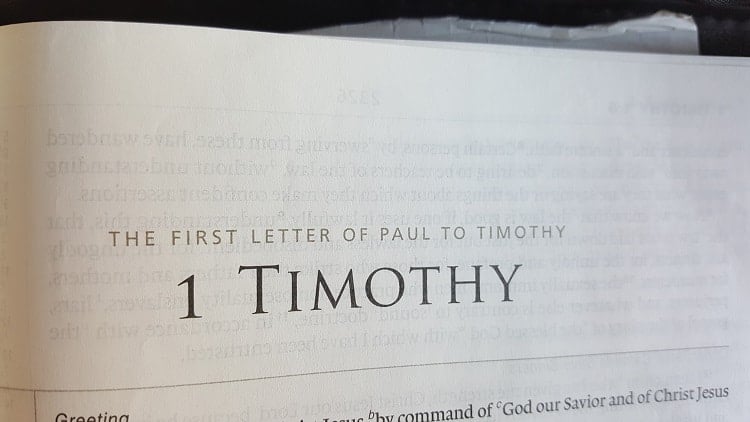⏱️ Estimated Reading Time: 4 min read
1 Timothy 5:19-26, “Let a widow be enrolled if she is not less than sixty years of age, having been the wife of one husband, and having a reputation for good works: if she has brought up children, has shown hospitality, has washed the feet of the saints, has cared for the afflicted, and has devoted herself to every good work. But refuse to enroll younger widows, for when their passions draw them away from Christ, they desire to marry and so incur condemnation for having abandoned their former faith. Besides that, they learn to be idlers, going about from house to house and not only idlers, but also gossips and busybodies, saying what they should not. So I would have younger widows marry, bear children, manage their households, and give the adversary no occasion for slander. For some have already strayed after Satan. If any believing woman has relatives who are widows, let her care for them. Let the church not be burdened, so that is may care for those who are truly widows.”
At first glance, the devotional value of these instructions appears to be on par with biblical genealogies, Levitical regulations, and tabernacle instructions. In an age of insurance, retirement accounts, social security, and women’s rights, Paul’s instructions to Timothy seem antiquated at best. However, when you think about the broad principles that form the foundation for Paul’s specific instructions, you see at least three ideas that ought to challenge many Christians in the United States.
Take Care of the Family
First, Paul assumes that family takes care of family. Paul stated the general principle in 1 Timothy 5:8 when he wrote, “But if anyone does not provide for his relatives, and especially for members of his household, he has denied the faith and is worse than an unbeliever.” The particular application comes a few verses later when Paul talks about Christian women taking care of widows in their family (1 Timothy 5:16). This admonition is complicated in our individualistic, mobile society, and it will certainly require sacrifice. Still, every Christian ought to ask himself or herself, “Am I taking care of my family members in need?”
The Church is to Care for the Vulnerable
Second, Paul assumes that the church cares for the vulnerable. Specifically, Paul is concerned with ministry to widows. In our day, churches still ought to have concern for widows. They are often lonely, and regularly need help in taking care of basic household maintenance. In some situations, there may be financial needs as well. Additionally, churches ought to be concerned for anyone who is vulnerable. This may include single moms, at risk teens, pregnant teens, the homeless, immigrants, victims of abuse, the unborn, and orphans to name a few. Every church ought to ask itself, “Are we caring for the vulnerable?”
Paul’s Focus Enhances Ministry
Third, Paul assumes that focus enhances ministry. Paul presented Timothy with a particular set of restrictions about widows and benevolence. You may expect an apostle to tell a pastor to minister to as many widows as possible, but Paul is a realist and a pragmatist. Realistically, Paul knows that Timothy’s church can’t support everyone in need. Pragmatically, Paul knows that if Timothy allowed his church to be “spread too thin,” the church’s mission of evangelism and discipleship would suffer. Churches must avoid the temptation to do too much by regularly asking the question, “Are we focused on the right things?”
Last Thoughts
In summary, these verses may not be high on your list for meditation or memorization. Nevertheless, there is great devotional value in this passage. The principles beneath the specifics about widows and church benevolence are both challenging and convicting.




